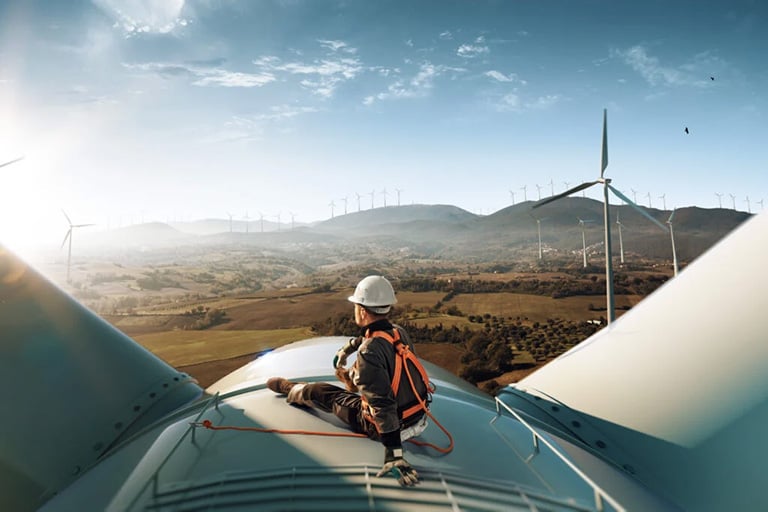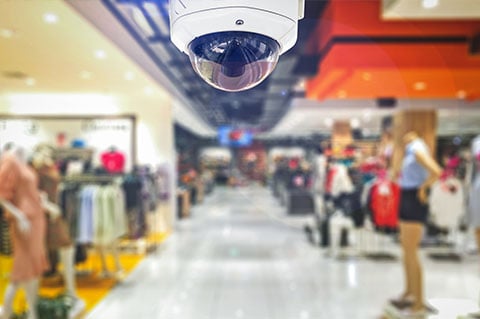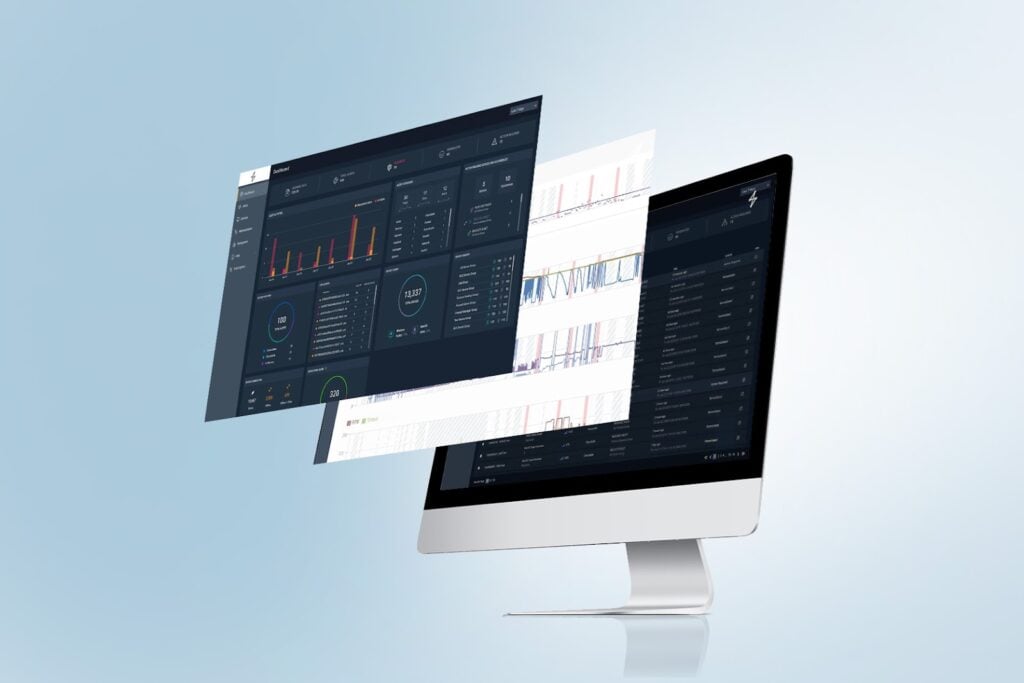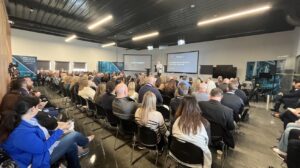When it comes to the potential of artificial intelligence (AI) to transform the world of politics and elections, the vote is in—it’s already underway. After all, political consultants for both major national parties tout their use of big data and machine learning to make substantial improvements in how they select and target likely donors to major political campaigns.
On the national level, the capabilities of AI tools are allowing campaign braintrusts to build reliable predictions of voters’ behavior based on their data consumption patterns, relationships, social media use, and unique psychographic profiles. Those uses have managed to take much of the guesswork out of elections and even the creation and sponsorship of legislation by elected officials, allowing them to spend their limited time and resources more efficiently.
But beyond the ability to crunch millions of numbers from different data sets, it’s the visual capabilities of AI that tantalize or terrorize those involved in campaign life, depending on who you talk to. Those concerns come because image and video manipulation powers are becoming more accessible, which creates the possibility for disinformation from so-called deep fake media assets.
The ability to use AI to correct blurry and incomplete images is something we’ve addressed here before at SparkCognition, with innovations in transformer techniques and general adversarial networks enabling AI to perform such tasks with astounding accuracy, even if there’s very little visual data to work with as a starting point. With concerns over political disinformation growing in the U.S. and abroad, students at the University of Notre Dame are among those working on using visual AI and other related technologies to detect manipulated images and raise red flags to slow the spread of fraudulent visual media during election cycles.
The coming black hat/white hat skirmishes between political forces using AI is a growing concern for Josh Berthume, founder of the Swash Labs creative agency, who consults candidates and campaign leaders across the country about their messaging and voter targeting strategies so they can use their donor dollars as effectively as possible.
“As someone who has spent a lot of time thinking about the weaponization of digital media and how disinformation is such a scourge and the big problem threatening people’s ability to objectively understand reality, I think there’s actual stuff that either is happening now or is going to get prevalent really soon in a way that I think no one is really prepared for,” he said. “We’re not very far away because of how cheap and easy it has gotten. I think we’re not very far away from some sort of bad guy stuff playing a really disruptive and destructive role in electoral policy.”
Campaigns behind on AI trends
Berthume and others involved in politics agree that AI technology is only making its way into campaigns in fits and starts, with state- and local-level candidates rarely having the money or interest to explore what could be possible using neural networks and sophisticated data science. In fact, Berthume said many of the vendors currently billing themselves as AI-equipped are merely rebranding their data analysis capabilities as “artificial intelligence” to give themselves a trendy, high-tech label.
“I do see shops or other campaigns in the last couple of years using those terms interchangeably to mean they’ve got a system that optimizes for conversion. Or they’ve got a system that can look at an audience and then match that audience with people whose behavioral profiles on the platform looks like that audience,” he said.
“That stuff has been around for a long time and that’s really more properly kind of programmatic or data-centered, kind of like buying an optimization. Maybe some of it gets into machine learning. But I don’t think any of that is really technically AI if you were talking about it in the purest sense.”
That mischaracterization of what AI is and what it can achieve may also hinder the technology’s advancement in any meaningful way at the highest levels. After all, it took until the 2008 presidential election for a campaign (eventual winner Barack Obama) to begin making use of massive stores of voter data and link them to the by-then-well-established world of social media as a new way to reach constituents in targeted ways with precise messaging.
Sonia Van Meter, an opposition researcher and managing partner of Stanford Campaigns, said political campaigns tend to lag years or decades behind the best practices of corporate America and tech startups. While Van Meter and her colleagues consult for campaigns of all sizes including presidential candidates, the majority don’t see AI as having enough quick-hit impact to justify the monetary or labor investment.
“I have no doubt that AI will become instrumental and already is instrumental in certain facets of the political life in this country. But in terms of how individual campaigns are utilizing it, I’m not seeing it anywhere. I’m not talking about the committees, I’m not talking about forecasters that may be getting there. I’m talking about the people running for office in their individual campaigns. I mean, 90% of the clients I work for still pay me with a paper check.”
Creating mixed messages
Substantial advancements in how campaigners and candidates use AI tech could come from merging disciplines within the field. For example, using deep data analysis and pattern recognition for different voter demographic groups could help to find the messages that voters respond to best, with natural language processing technology then generating and testing different types of slogans and outreach materials to quickly find which are most effective.
While some candidates and voters may be put off by the idea of influence being won by machines and mathematics, Van Meter said it is time for candidates o adapt their communication styles based on what’s proven to work best.
“(Candidates’) fatal flaw is they think the way we should win is to sit you down and lecture you on why we’re right. But no one likes that and no one likes to be talked down to or likes to be lectured and made to feel like they’re stupid,” she said. “If AI can be deployed to figure out what people in Texas in particular need to hear to vote in their own best interest, I am 100% here for it. I have no pause. I am not squeamish about this. I am one of those ridiculous people who looks at AI and sees nothing but potential and possibility and very, very little in the way of danger.”
Berthume is more cautious in his appraisal of AI’s possible uses in politics and campaigns, noting that it’s probably inevitable that pieces of the tech will be manipulated to cause “people to not believe objective reality.”
“I think unintentionally a lot of good data science and a lot of good machine learning and a lot of developed techniques like targeting and stuff like that is used for good purposes,” he said. “Where that has gone wrong is when those same tools and benefits are misused and are used for malicious purposes; it’s not policed or restricted as much as it should be.”
The concerns of Berthume and other thinkers and leaders in sectors touched by AI are not new. Throughout history there have been valid concerns over the way technological advances would impact everyday life, from predictions of mass joblessness due to automation to arguments by scholars that the printing press would be too effective at spreading religious and other texts to the general citizenry, democratizing knowledge and taking power away from the educated few.
While there was some kernels of truth behind those concerns early on, automation and general knowledge enhancement have been of tremendous benefit to mankind. At SparkCognition we see incredible promise in how AI can be used across society, from the fields we specialize in (visual AI, renewable energy, oil and natural gas, and financial services) to the many other facets of society where technology is bringing change and efficiencies for all. Wider use of all developing technologies allows for more innovation and discussion of best uses to take place, with the altruistic, enlightened tendencies of the general populace taking hold in the end.
With Election Day on Nov. 8 drawing near, be sure to research the basics of ballot races in your state and local area. And make a plan to vote on the big day or take advantage or early voting wherever available.
















